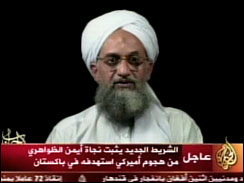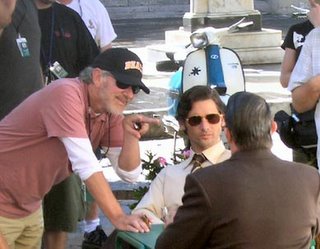Believe it: Hamas target is Israel
While it is probably true that Hamas won the recent Palestinian elections not because it promised to wipe out Israel, but because it promised to pick up the garbage in Gaza City, it is also true that the prospect of increased violence did not deter the average Palestinian from voting for Hamas. History has seen this sort of thing before. The rule - the only rule - is to take zealots at their word.
If you would have asked a random German in, say, 1932 if he was voting for the murder of Jews, he would have said, "Nein!" What he really wanted was an end to the brawling in the streets and a big thumbs-up to traditional German culture.
I saved for this paragraph any reference to Hitler so as to postpone the reflexive outburst of "Nothing can be compared to the Nazis!" Normally, I agree, and I usually shy from such comparisons. But I am not likening Hamas or Islamist militancy to Nazism, I am only likening the mind of one sort of zealot to another.
They mean what they say. For the Nazi, it was all in their bible, "Mein Kampf," and in their rallies and speeches. It took some effort to overlook their stated intentions, but a considerable number of people managed to do so and later professed shock at what happened. They looked into the abyss, saw nothing that concerned them personally - and went back to sleep.
In due course we will be told that what Hamas has been insisting on for years - the utter destruction of Israel - is not really a serious goal. Hamas will be forced to moderate by the reality of governing. As for its truculent anti-Semitism - not to be confused in this case with anti-Zionism - it will be dismissed as without consequence. Hamas will have to deal with reality - and Israel, in the region, is the mightiest reality of them all. Yasser Arafat came to understand that.
But Arafat's Fatah movement was secular and nationalistic. Hamas, on the other hand, can be traced back to the Muslim Brotherhood and its 1928 declaration: "The Koran Is Our Constitution." It gleefully sends people off to their death as suicide bombers, spackling the walls of Tel Aviv restaurants with the flesh of the innocent while assuring the bombers a place in paradise. This is terrifying. That is the whole idea.
The continual mistake of the Bush administration is to think, based on not much thinking to begin with, that people are people - pretty much the same the world over. This is why the President extols democracy. It must be what everyone wants because it is what everyone here wants. But Toto knows the truth. The Middle East is not Kansas.
The leaders of Hamas brim with the word of God and the certainty of their cause. From here on they will lie about their ultimate aim and smilingly assure us that what they have always said they no longer mean. All over the world, people will believe them and urge the U.S. and Israel to do the same. Take my word for this. Anyone can see the future. It's all in the past.
Richard Cohen, a syndicated columnist for the Washinton Post, is a graduate of Far Rockaway High School and attended Hunter, NYU and Columbia. He was a four-time honorable-mention winner in Pulitzer Prize competitions (he doesn't know if that's a record, but says it's his personal best). Cohen splits his time between Washington D.C. and New York City.



